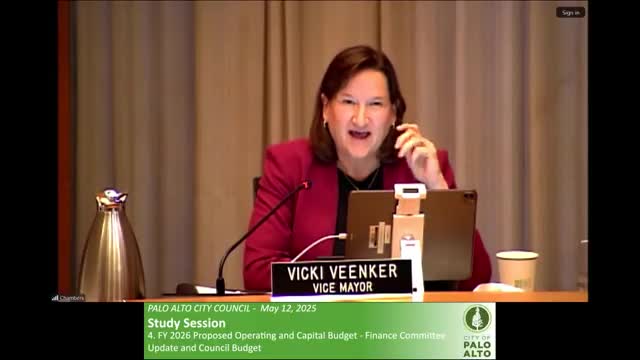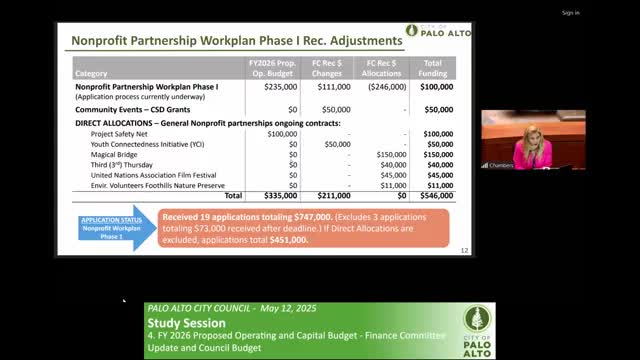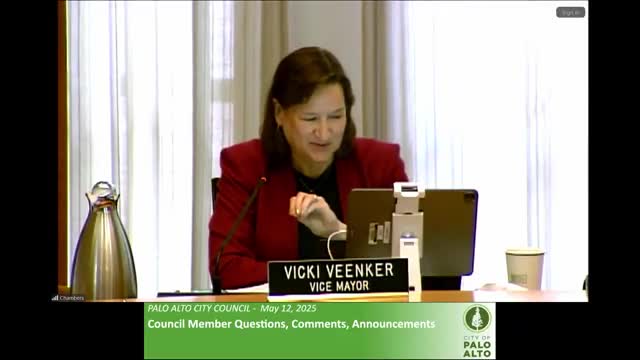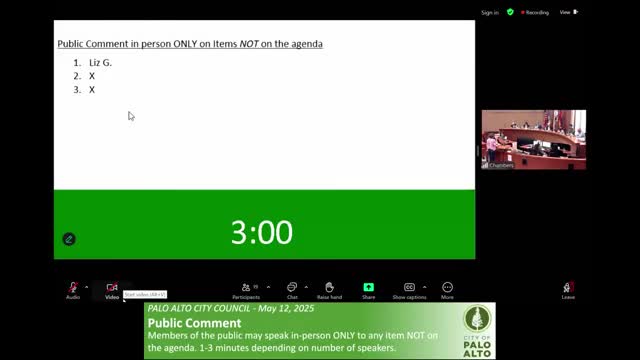Article not found
This article is no longer available. But don't worry—we've gathered other articles that discuss the same topic.

Palo Alto council adopts ADU code update to comply with state guidance; asks staff to study bigger ADUs and condo conversions

Palo Alto council and finance committee sketch $6M buffer, ambulance changes and nonprofit funding as budget work continues

Council asks staff to agendize closed sessions on two federal lawsuits; city attorney to schedule briefing

